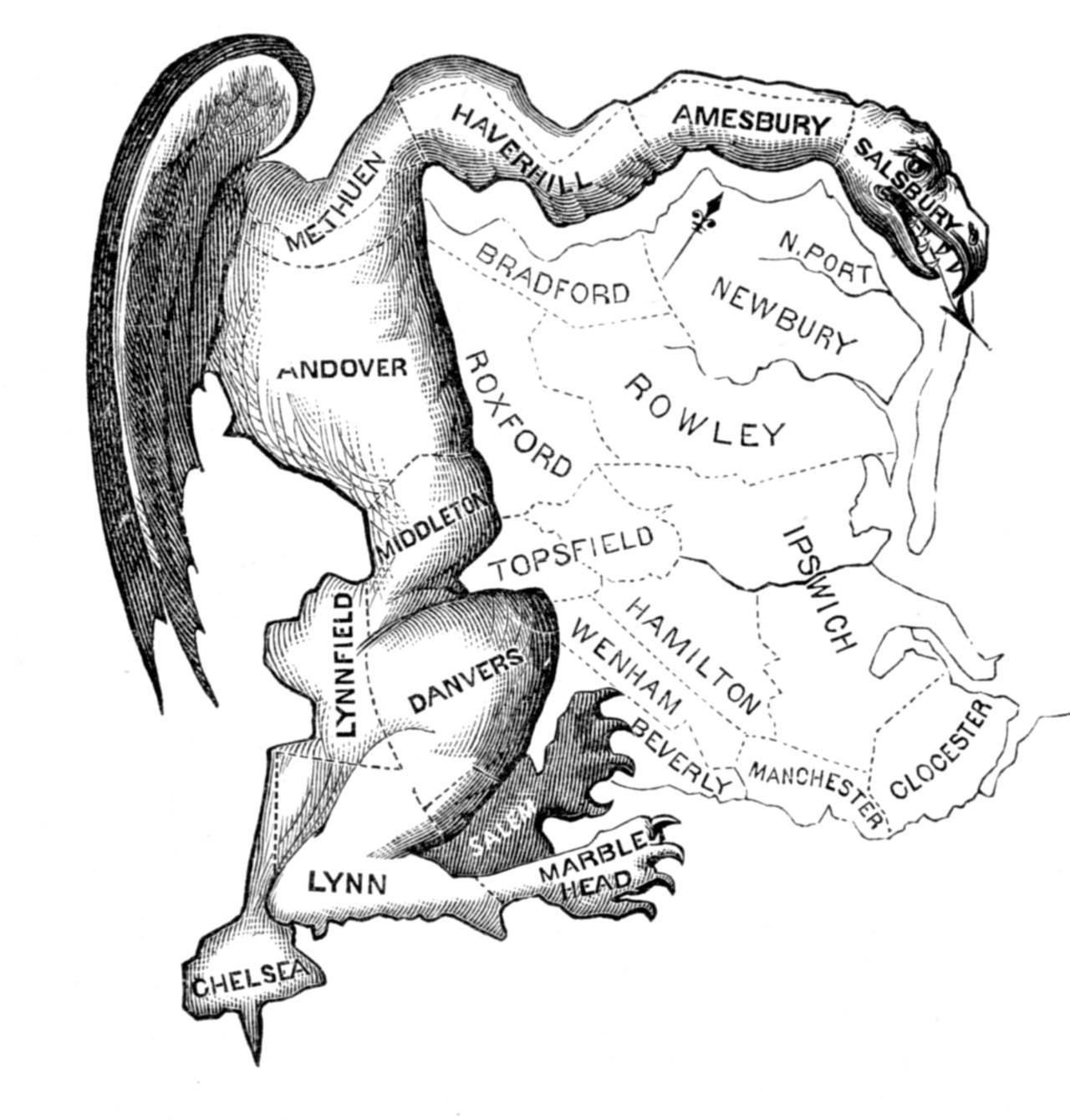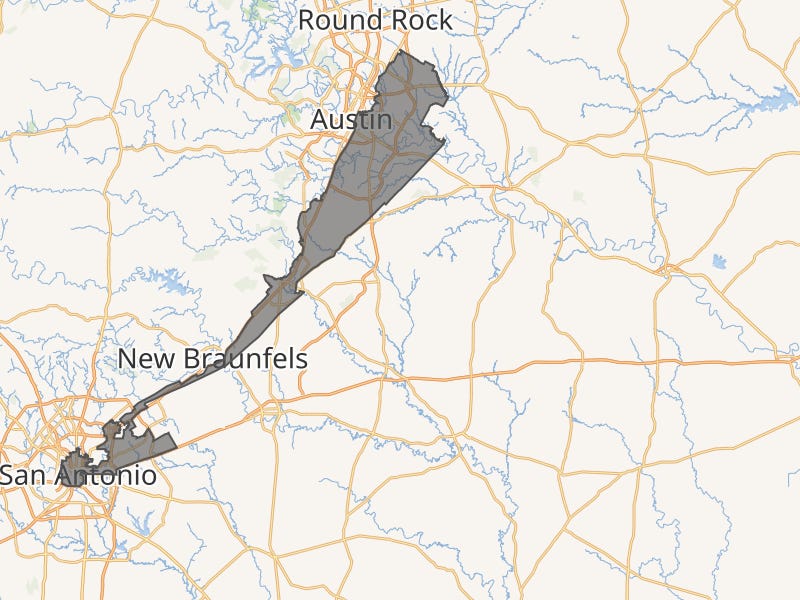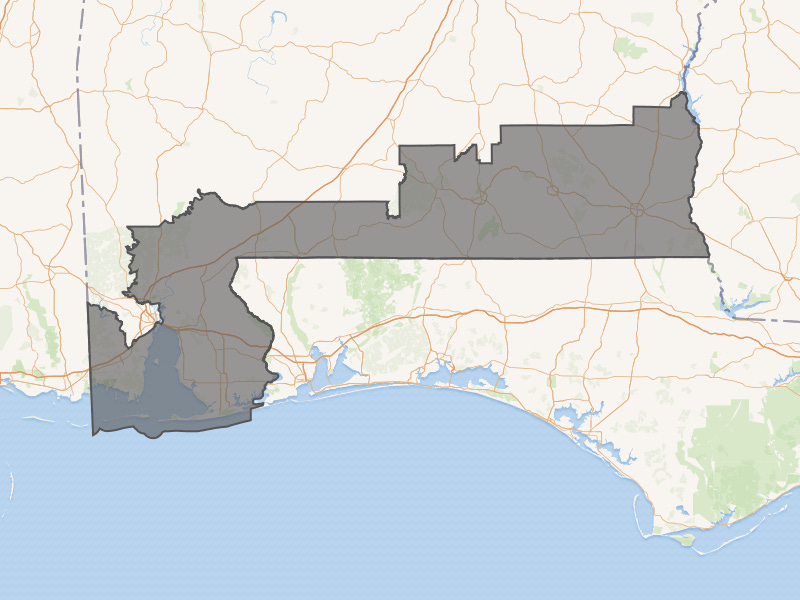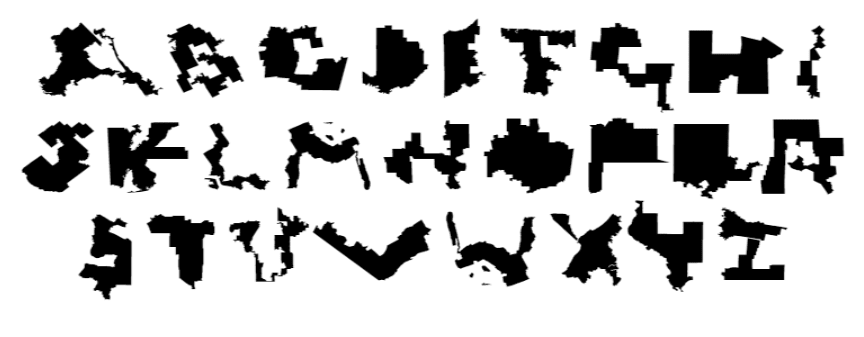If you’ve been following the news (and you have, or you wouldn’t be here) you know that the Republicans are once again engaged in an assault on democracy. This time, they’re manipulating the redistricting process to give themselves an unfair advantage.
For some reason, they’ve named the process they’re using after a guy who died in 1814.
Strange thing to do, isn’t it?
Or it would be if gerrymandering were in fact something new, but it’s been going on for over 200 years.
This doesn’t make it good, but it does make what I’m stating accurate.
The process is named after Elbridge Thomas Gerry, the fifth vice president of the United States and 9th Governor of Massachusetts, who ironically did not approve of the process, calling it "highly disagreeable."

Let’s start with the basics
Redistricting is the process of redrawing electoral district boundaries, typically every ten years after the U.S. Census, to account for population changes and ensure equal representation (e.g., roughly equal population sizes in congressional districts). It’s a legal requirement under the U.S. Constitution and federal law, like the Voting Rights Act of 1965, to maintain fair representation.
Gerrymandering is a manipulative form of redistricting where boundaries are drawn to favor a specific political party, candidate, or group, often undermining fair representation. It’s intentional and can involve tactics like "packing" (concentrating an opposing party’s voters into one district) or "cracking" (spreading them across multiple districts to dilute their influence).
How can you tell the difference?
There are a few ways to tell if gerrymandering is taking place, including partisan outcomes (state’s vote share doesn’t match the seat share), legal challenges (gerrymandering often triggers lawsuits), and Data and Metrics. Of course, sometimes the easiest way to tell is by looking for districts with bizarre shapes that defy geographic logic. Like these two districts:


How prevalent is gerrymandering in the US? Well, it’s bad enough that it led to the creation of the Ugly Gerry font, the characters of which consist of shapes of United States congressional districts.
Why is it happening?
This is really two questions:
Why are politicians engaged in this fight?
How is this permitted in a democracy?
The first question is easy; it’s happening for the same reason abuse always happens, because politicians want power. Democracy must be protected from the will of the people.
“We draw the maps to win elections, not to let voters decide the outcome.
-- Illinois Democratic Leader (2021, anonymous quote in Chicago Tribune)
The latest round of redistricting battles began in Texas, where Republicans, at Trump’s urging, proposed a new congressional map to flip five Democratic seats, targeting urban areas like Houston, Austin, and Dallas.
Governor Gavin Newsom proposed a special election on November 4, 2025, to allow voters to approve a new map drawn by the Democratic-controlled legislature, aiming to flip five Republican seats, claiming it "WILL END THE TRUMP PRESIDENCY."
It has since expanded to other states, including Florida, Louisiana, New York, North Carolina, Ohio, and Wisconsin.
The goal of both parties is to control the House after the midterm elections in 2026, and if they can’t do it by convincing voters on the strength of their policies and ideas (and they can’t), then they’ll try to do it by rigging the system.
“How is this permitted in a democracy?” is more complicated but comes down to the intersection of two realities: 1) electoral district boundaries must be redrawn periodically to adjust for population changes, and 2) someone has to decide how to do that.
The big question is “who does the redrawing?” In most states, redistricting is determined by the state legislature. This provides an almost irresistible temptation to cheat. Of the 13 gerrymandered states (Arkansas, Kentucky, Louisiana, Maryland, North Carolina, Ohio, Pennsylvania, Texas, Utah, West Virginia, Illinois, New York, Oregon), 84.6% let state legislatures determine congressional redistricting, either directly or through hybrid systems where legislatures exerted significant control.
The obvious solution is to let independent commissions determine redistricting. It isn’t perfect (someone has to decide who is on the commission after all), but it has proven to be less problematic than letting legislatures make the decisions.
The good news is that it’s been done before:
Voter Initiatives: Arizona (2000), California (2008, 2010), Colorado (2018), Michigan (2018), and Virginia (2020) adopted commissions through ballot measures, reflecting public demand to curb gerrymandering after scandals. These required collecting signatures, drafting amendments, and securing voter approval, often led by grassroots groups.
Legislative Proposals: Idaho (1986), New Jersey (1966, 1995), and Washington (1983) adopted commissions via legislative proposals for constitutional amendments, later ratified by voters. These were responses to court challenges or bipartisan agreements to avoid gridlock.
Who are the bad guys in this current round of gerrymandering battles? Trump started it (this time) and we all know he’s never found a loop-hole (cheat) that he didn’t like. Of course, his supporters will likely argue that it’s in response to the bump the Democrats received due to the high levels of illegal immigration during the Biden administration.
And away we go with another round of “whataboutism.”
The fact is that the Republicans do it more than the Democrats (at the moment), but it doesn’t matter. I’m less concerned with pointing fingers than I am in pointing out that it’s bad regardless of who is doing it. In fact, as loath as I am to use this overused term, it is a threat to democracy. What else can you call a system that lets politicians override the will of the people?
The fix, as with most problems with democracy, rests in the hands of the voters.
In other words, nothing will likely be done about it for the foreseeable future.
Democracy is a device which ensures that we shall be governed no better than we deserve.
-- George Bernard Shaw
Phil is a freelance writer, Canadian Navy veteran, and classical liberal. He has lived and worked in both Canada and the United States and currently resides in Vancouver, British Columbia where he writes on politics, individual rights, free speech, and anything else that catches his fancy.
If you enjoyed this article please consider sharing your thoughts in the comments, subscribing, or even buying him a coffee if you’re feeling generous and felt that this was a particularly enjoyable article. Your attention, participation, and support really make a difference to us.
Wrong Speak is a free-expression platform that allows varying viewpoints. All views expressed in this article are the author's own.






Phil,
You have written another good post that only 10 people might care about. This is not a criticism mind you. As a former lawyer who wrote about mundane subjects like the Americans with Disabilities Act (riveting material) your efforts are not lost on me. But I’ve read the comments and well…. I will leave it right there. Most people don’t know what they don’t know. The idea that our system would be “better off” with a third party takes us down a road that is a dead end (democracy is bad enough without having to compromise with another corrupt party).
You already know where I’m coming from politically. I may not be alive when the next revolution comes, but hopefully my children will be.
My thoughts on all things have been recorded and shared with the next generation. I have also shared your good work with the future leaders of our next American Revolution.
As always I applaud your fine writing and sound reasoning. I look forward with great anticipation to your next post.
https://youtu.be/xxmXeLEcs9s?si=T0lPPHb7TvoselUI
Watch from minute 12